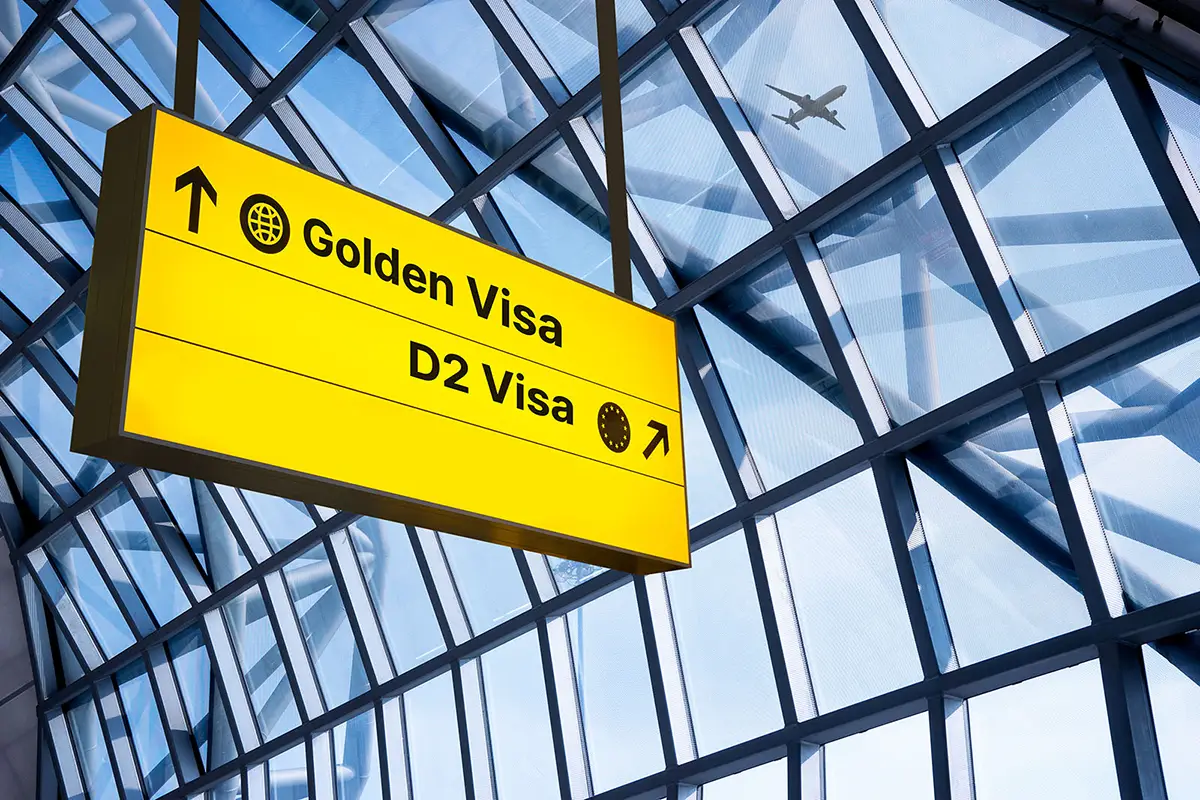Greece vs. Other European Countries: A Cost Comparison
Greece has steadily risen in the international spotlight for tourists, yet it still remains an underrated gem of Europe’s southeastern region as place to move to. While many tend to think of Europe Union (EU) in terms of countries like France, Germany, or Italy, those who choose Greece discover a haven - on the budget - for expats.
Offering an affordable cost of living, safety, sunny Mediterranean climate, pristine air quality, welcoming culture, and excellent environment for raising a family, Greece has more than enough reasons to attract new residents. However, in comparison to other EU countries such as Spain, Italy, or Germany, Greece offers a much lower cost of living while still providing a high quality of life. Living in the capital city Athens, one of the most expensive areas in Greece is, nevertheless, notably more affordable than living in comparable cities like Barcelona or Berlin.
Although Greece is an incredible place to live, due to all pros already listed, the true standout feature is its affordable cost of living. It is one of Europe’s most budget-friendly countries, making it entirely possible to enjoy a high-quality lifestyle without excessive expenses. Once expats discover this, it becomes clear why Greece is gaining popularity among them today.
According to the information provided by Numbeo, a real-time crowdsourcing data website, a monthly rent in Athens is less than half of that in Barcelona or Berlin, while other living expenses, such as utilities and dining, remain equally competitive - and even lower. With such an affordable life, even in the country’s capital, Greece showcases itself as a paradise for those who want to enjoy life without breaking the bank. Overall, the good quality of life, parallel with the prices, turns Greece in one of the best places to live without compromising on lifestyle.
Cost of Living in Greece vs Other Countries
Now, comparing Greece to other European countries alone may not give us the full picture, as some might argue that Greece’s affordability is a result of its economic situation. While this reasoning is not entirely off base, it overlooks Greece’s exceptional quality of life when compared globally. In this broader context, it becomes clear just how affordable Greece is, especially when stacked against countries around the world that offer only a fraction of the quality of life that residents enjoy in Greece.

When comparing countries, it is essential to strike a balance between cost of living and quality of life. After all, affordability means little if it comes at the expense of safety or basic comforts. In this regard, Greece excels, offering residents a high quality of life at a lower cost than many Western European or American nations. Unlike countries like Switzerland, the United States, or Australia—where everyday expenses such as housing, transportation, and food can be considerably higher—Greece presents a more affordable option without compromising on quality. On the other hand, while countries like Brazil and South Africa may offer similar affordability, Greece stands out for its distinctive combination of European lifestyle, safety, stunning natural beauty, modern conveniences, rich history, and relaxed Mediterranean culture.
In this comparison, Greece sits in a mid-range position, being far more affordable than countries like Switzerland or the United States but offering a higher standard of living compared to countries like Brazil and India. This balance makes Greece an attractive option for expats, digital nomads, and investors seeking a comfortable yet affordable lifestyle in Europe.
Food Costs in Greece: How Affordable is to Do Groceries?
When we think of Greece, what is the first thing that comes to mind? If you said Greek history, democracy or mythology, we do not blame you, but what about its cuisine? Greece is famous for its authentic, healthy Mediterranean cuisine, with fresh seafood served by the beach and delicious chicken souvlaki available at every local food shop on the streets of Athens. Greeks take immense pride in their cuisine, and it is no coincidence that food costs play a major role in the country’s affordability.

This is especially evident when shopping for groceries like vegetables, fruits, and dairy, which are significantly cheaper than in other Western European countries. In fact, with as little as half of what a resident might spend in places like Germany or France, the Greek can enjoy a rich, nutritious diet.
On average, basic groceries are cheaper in Greece. For example, the cost of a dozen eggs is about €3 in Greece compared to €4-5 in other parts of Europe. These savings, combined with the fresh and healthy nature of Mediterranean cuisine, make food both affordable and enjoyable in Greece.
Housing Costs: Rent and Property Prices
Housing is undoubtedly one of the biggest expenses for any expat looking to relocate. Whether you are searching for a rental or planning to buy your own place, you might face some challenges when making this decision. The good news for new residents in Greece is that both rental and property prices are significantly lower than in many other European countries, and even more affordable compared to places like China and Canada. Property prices in Greece are especially reasonable, not only in low-density areas but also in cities like Athens, Piraeus and Thessaloniki.

Rental Costs in Major Greek Cities
The Greek real estate market has shown resilience in recent years, with rental prices on a steady upward trend, particularly in major urban centers. According to the Bank of Greece, as of the third quarter of 2024, the average rent for residential properties across the country was around €8.85 per square meter (€0.82 per square foot), marking a slight increase from the previous year. In Athens, the country's most expensive rental market, prices vary significantly by neighborhood. For instance, high-end areas like Vouliagmeni and Kolonaki see average rents of €20.38/m² and €18.05/m² respectively, while more affordable districts like Patissia offer rentals around €8.30/m².
Regions like Crete also saw price increases, with the average rental cost reaching €8.85/m² in September 2024, reflecting a 2.43% increase compared to the previous year. This trend of rising rental prices is consistent across most of Greece, driven by growing demand in urban areas and foreign investment, especially through Greece's Golden Visa program. It's important to note that, despite the recent price increases, the average cost of housing remains relatively affordable for a European city.
Property Prices for Buyers
Greece also offers excellent value for those interested in purchasing property, especially in less tourist-heavy areas or emerging regions. The real estate market has been marked by steady price increases in recent years. According to the Hellenic Statistical Authority (ELSTAT), the average price for residential properties in Greece rose by 6.74% in September 2024, reaching €2,154 per square meter. This marks a continued upward trend observed throughout 2023 and into 2024.
Athens leads the cost with property prices per square meter in the city center ranging around €2,500 (€232.26 per square foot) while prices in the suburbs or smaller towns are lower. In high-demand areas such as the capital’s Southern region, the average prices per square meter reached up to €4,000 to €7,527 depending on the neighborhood. The rising property prices are driven by both domestic demand and increasing interest from foreign investors.
In addition, regions like the Island of Crete saw the highest property prices, with its capital, Chania, showing a rating of €2,517, while the lowest was recorded in the Heraklion, with €1,770. According to ELSTAT, these increases are part of a broader trend of rising real estate values across Greece, bolstered by growing foreign investments and economic recovery. This trend indicates that purchasing property in Greece now is an investment in an asset that is highly likely to appreciate in value over the coming years.
Healthcare: Affordable and High Quality
Greece’s healthcare system is known for providing both public and private options, with affordable and high-quality care available to all residents. Public healthcare is accessible at no cost to residents and expats who qualify, but many opt for private insurance due to its relatively low cost.
Private healthcare is significantly more affordable than in many Western countries, with a typical doctor’s appointment at a private clinic costing between €50 and €100, while private health insurance premiums range from €500 to €1,500 annually, depending on the level of coverage.
In comparison to the United States, where healthcare costs are notoriously high, Greece offers a much more affordable solution without compromising on quality.
Transportation: Affordable and Well-Connected
Public transportation in Greece is convenient and cost-effective, especially in larger cities like Athens and Thessaloniki. The cost of a monthly public transport pass in Athens is €30 as of 2024, providing unlimited travel on buses, trolleys, trams, and metro lines within the city, excluding airport routes. This makes commuting around the city both affordable and efficient.
For those who prefer to drive, owning a car in Greece is also more affordable compared to other parts of Europe. Fuel prices are on par with EU averages, and car maintenance costs are generally lower. The availability of ferries and flights also makes island-hopping both easy and affordable.
Education: Diverse Options for Families
Greece offers a mix of public and private schooling options for families. Public education is free for all residents, and there are numerous private international schools that provide quality education in English and other languages. School fees, in this case, are relatively low compared to other European countries, making Greece an attractive option for expats with children.
The public education system is free and compulsory for children between the ages of 6 and 15, and children normally start their education in primary school (Dimotiko) and continue to secondary education (Gymnasio). After completing compulsory education, students may choose to continue to senior high school (Lyceum) or vocational schools, which last until they are 18. The public schools follow the Greek national curriculum, and instruction is primarily in Greek. For foreign-born students, public schools may offer Greek as a second language and integration support, although the focus remains on the national curriculum.
In addition to the public system, Greece has private education options, including international schools that are often more adaptable to the needs of expat families. These schools provide education in English or other languages and offer curricula like the International Baccalaureate (IB), British, or American systems. They are popular among expat communities and foreign investors seeking a more internationally oriented education for their children.
There are approximately 30 international schools across Greece, with the majority located in Athens. Tuition fees in these schools typically range from €4,000 to €20,000 per year, depending on the institution and its offerings. Some schools provide additional services such as boarding or specialized language support, which can influence the overall cost.
Average Private School Fees in Greece:
Utilities and Other Living Expenses
While utility costs can vary depending on the region and property type, they remain affordable overall. On average, utility bills in Greece, including electricity, water, and heating, range from €120 to €180 per month. Internet and phone services are also inexpensive, with an average cost of €25 to €35 per month for high-speed internet.
Dining Out in Greece
Dining out in Greece is an experience that can be as affordable or as luxurious as you desire, depending on where you are and what you are in the mood for. While high-end restaurants in places like Athens or Santorini may come with a hefty price tag, you will find that dining at local tavernas or smaller restaurants elsewhere is incredibly budget-friendly. In fact, after saving so much on your daily expenses, you can easily afford to splurge a bit and treat yourself to an unforgettable meal with a view of the Aegean Sea!

For instance, in less touristy areas, a hearty meal of local Greek specialties—like souvlaki, moussaka, or freshly caught seafood—might cost you less than €10. Meanwhile, in hotspots like Mykonos, you can still indulge in world-class dining at prices that, while higher, offer exceptional quality and atmosphere.
So, whether you are grabbing a quick gyro for a few euros or sitting down for a lavish seafood feast, Greece’s diverse dining scene ensures you will never have to worry too much about breaking the bank. And since you saved so much by opting for more affordable meals earlier, why not go ahead and treat yourself to something special? Whether it is a fine-dining experience or a charming seaside taverna, you will find there is always room in your budget for a bit of indulgence!
Living in Greece: The Pros and Cons
Although Greece offers a lower cost of living compared to many Western European countries, the local job market remains challenging, with relatively low salaries. As of 2024, the minimum wage stands at €780 per month, approximately USD $825 or £640, which is below the EU average. The standard gross monthly salary in Greece is about €1,180, according to the Hellenic Statistical Authority (ELSTAT). While this represents a modest improvement, it still lags behind many other European nations.
The rising cost of living, particularly in cities like Athens and Thessaloniki, has made it difficult for locals to match their wages with expenses, especially in terms of housing and daily necessities. According to Eurostat, purchasing power in Greece remains 30% below the EU average, highlighting the challenges faced by residents.

However, for those working remotely, Greece offers an attractive lifestyle. With the flexibility of a remote job, there are no significant obstacles to enjoying life on a Greek island, sipping coffee on the terrace of a house by the beach. Expats with remote incomes from wealthier countries can capitalize on Greece’s lower living costs while enjoying its natural beauty and cultural richness. This makes Greece an ideal destination for digital nomads or those seeking a peaceful, affordable lifestyle in a picturesque setting.
Another problem of living in Greece is the high level of bureaucracy, but with proper guidance and patience, navigating the system becomes manageable. For those using services like Investment Visa, many of these bureaucratic hurdles are minimized, allowing for a smoother transition into Greek residency or property ownership.
Read more:
Living in Greece: Pros & Cons
Mediterranean Living: The Best Places for a Long and Healthy Life
Why Invest in Greece with Investment Visa
At Investment Visa, we specialize in guiding our clients through the process of securing Greek residency through investment, particularly via the Golden Visa Program. For a minimum investment of €250,000 you can obtain Greek residency for yourself and your family, granting you access to the benefits of living in this vibrant, affordable country.
Our personalized services are designed to simplify the entire process, from selecting the right property to handling legal documentation and helping you settle into your new life in Greece.
For more information on the Golden Visa program or other residency options in Greece, visit our Residency by Investment in Greece or contact us directly for a complimentary meeting with our investment advisors. With its low cost of living, excellent healthcare, and vibrant culture, Greece is not just a fantastic place to visit—it is a wonderful place to live. Whether you are seeking affordable luxury, a relaxed lifestyle, or a sound investment, Greece offers it all.
Explore the possibilities of living in Greece with Investment Visa today.





























































































































